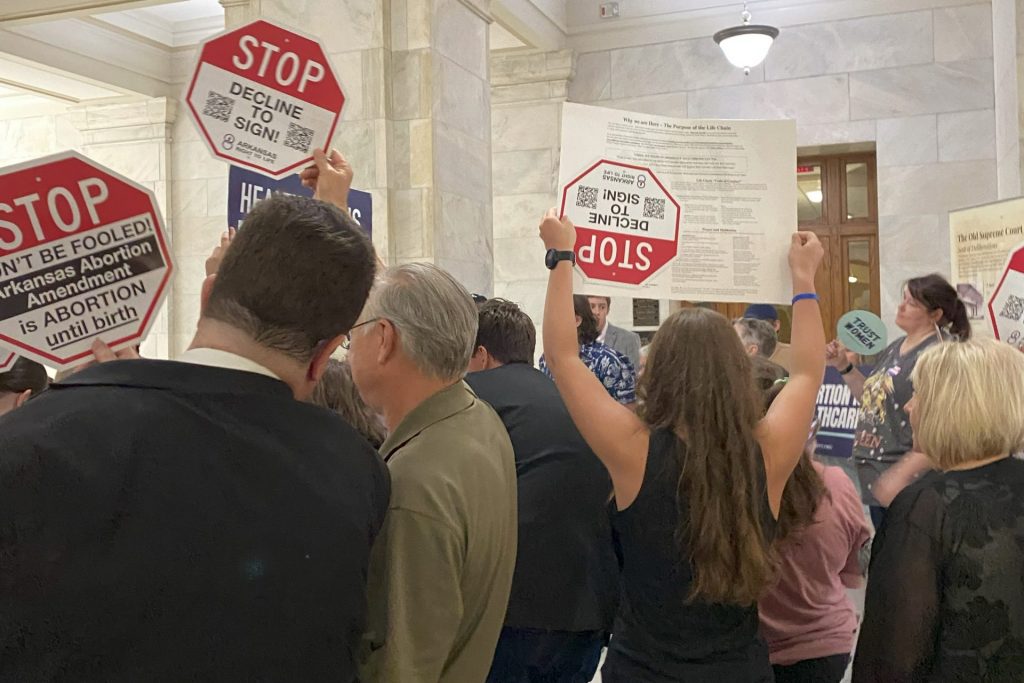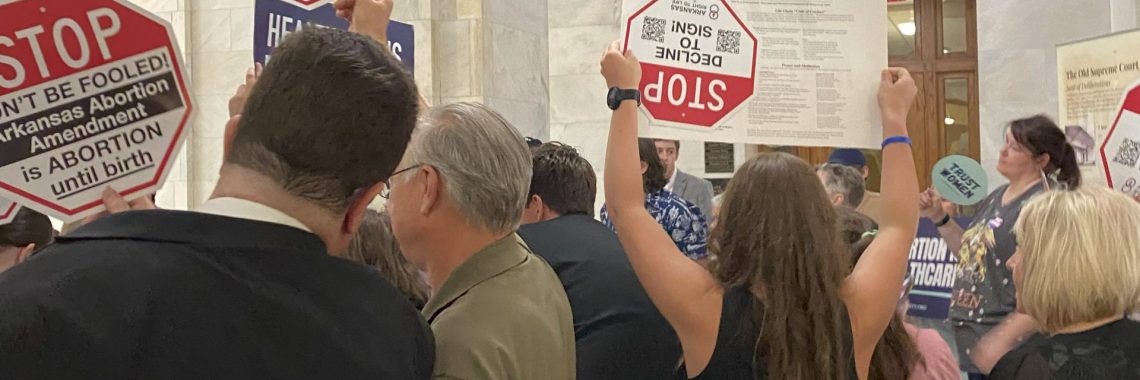Another Group Announces Opposition to Marijuana Amendment in Arkansas

Last week the group Protect Arkansas Kids filed campaign paperwork with the state Ethics Commission indicating it would oppose the Arkansas Medical Marijuana Amendment of 2024.
The marijuana amendment by Arkansans for Patient Access would change the state constitution to expand marijuana in the state. The group submitted signatures to place the measure on the ballot last Friday. The Secretary of State is currently reviewing and counting the signatures to determine if they are valid.
If passed, the marijuana amendment would drastically expand marijuana in Arkansas.
The amendment makes it possible for people to grow and use medical marijuana without suffering from a specific medical condition listed in state law.
The measure would give free marijuana cards to immigrants and out-of-state residents who come to Arkansas to use marijuana.
It also would guarantee marijuana growers and sellers a monopoly over the state’s marijuana industry.
The measure also fails to limit the amount of THC that marijuana products can contain, and it repeals restrictions on marijuana advertising.
All of this would lead to more marijuana in the state.
Arkansas voters rejected marijuana legalization at the ballot box in 2022. That amendment was opposed by a broad coalition of churches, business groups, elected officials, and citizens who knew that marijuana would be bad for Arkansas. We anticipate similar opposition to the 2024 marijuana amendment.
Articles appearing on this website are written with the aid of Family Council’s researchers and writers.
BREAKING: Secretary of State Disqualifies Abortion Amendment Petitions for Failing to Comply With State Law

The following is a press release from Family Council Action Committee.
FOR IMMEDIATE RELEASE
Wednesday, July 10, 2024
On Wednesday the Arkansas Secretary of State’s office disqualified the petitions for the Arkansas Abortion Amendment due to the petitions’ failure to identify paid canvassers by name as required by state law.
Family Council Action Committee Executive Director Jerry Cox released a statement, saying, “This is good news. The people who supported this amendment ran an aggressive petition campaign. But Arkansas law is very specific about how petition signatures are supposed to be collected and submitted. The Secretary of State has made the right decision by disqualifying these petitions that did not comply with the law. We appreciate the Secretary of State’s diligence in reviewing these petitions and commitment to upholding state law.”
Cox said he is confident the abortion amendment would not have passed even if it reached the ballot. “Over the past several weeks we have seen a groundswell of pro-life opposition against the abortion amendment. Arkansans do not support abortion on demand, and that is what this amendment would have brought to Arkansas. This amendment would have legalized abortion for any reason during the first five months of pregnancy and abortion up to birth in many cases. The amendment did not include any medical licensing or health and safety standards for abortion. Those are fatal flaws, and I am confident Arkansans would have rejected the amendment had it made it to the ballot.”
###



